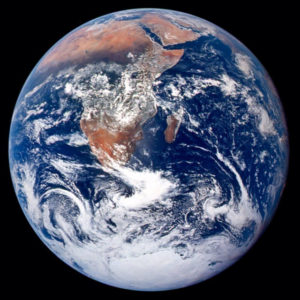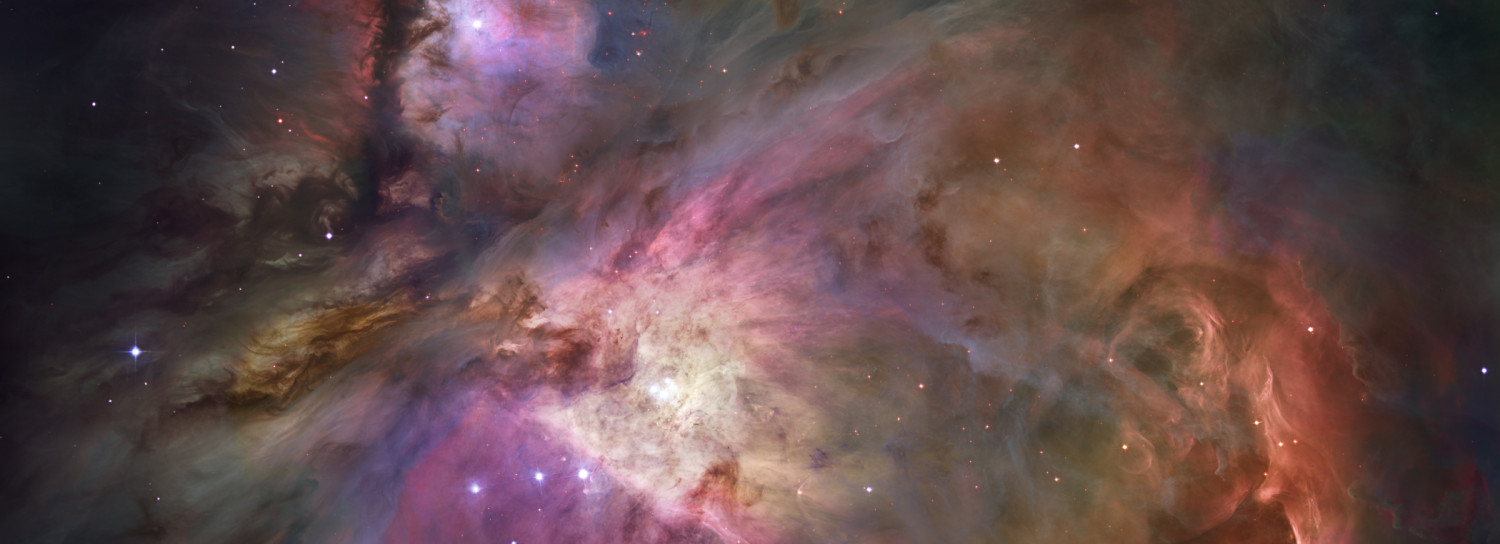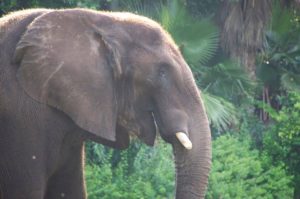We are not the supreme species on planet Earth, not by a long shot.
From a geological timespan point of view, we are relative newcomers. Less than 3 million years old as a genus, barely over a million years old in something we might recognize, and only around 250,000 years old in our present species. Compared to a few other species we currently share the planet with, we are not even toddlers. There is a species of ant in the Amazon that has been around 120 million years. Sharks? In some form or another, 150 million years. The horseshow crab? 445 million years old. Nautilus? 500 million years old. Cyanobacteria? Yes, they are animals, and as a group they are 2.8 BILLION years old. We have them to thank for even existing, actually, as they helped develop photosynthesis and turn our atmosphere into something we could breath. So yeah, we are pups, ignorant of time and space.
How about intelligence? Yes, we are smart, but depending on how you consider the word intelligence, we might not be the smartest. Much is known of our cousins in the ape and monkey world, and how they share many of our abilities and social structures. Chimps may have actually entered the equivalent of our Stone Age recently. In the oceans we have barely scratched the surface of what whales and dolphins understand, but we know enough to recognize a familiar look in their eyes–the look of high intelligence. Dolphins in particular may have the closest analogy to brain aptitude levels to humans in the animal kingdom. They aren’t the only examples. Many creatures are far smarter than we give them credit for. Even cows have displayed signs of a deep emotional life, showing the capacity to feel pain, fear and worry about their future. Insects such as ants and bees show complex social intelligence in a hive capacity that borders on science fiction. Event PLANTS, yes, plants, have lately shown signs that some of them might be, if not consciously, displaying rudimentary signs of intelligence such as actively seeking out paths to nutrients, adapting to new situations and retreating from signs of pain.
There is only one area where you can truly consider us to be at the top of the ladder on our world — we have had all the effects of an asteroid strike, or a super volcano eruption, on the environment. We represent one of the greatest catastrophes to occur in the 3.7 billion year history of life on Earth.

How did we get here?
Cause of the self-centered idea that we ARE the supreme species on Earth. I read some excerpts from a new book titled “The Myth of Human Supremacy” by Derrick Jensen earlier this evening. Mr. Jensen is described as an environmental philosopher. The brief excerpts I read were challenging to read, as even I, with my penchant for environmental causes and wanting to save the world, tend to concentrate my focus on the HUMAN struggle with climate change. The economic plight and HUMAN suffering that will result from our changing world. I don’t address enough the perilous edge that the rest of the world’s creatures have stepped up to, due to no actions of their own.
As I think Mr. Jensen gets to in his work, and I’ll have to try and read it sometime, the idea of Human Supremacy can easily be linked to over supremacist tendencies in our species. Racial bigotry, sexist attitudes, economic classism, religious persecution…all stems from the idea of being superior. On top of, instead of alongside and a part of. This is an attitude not easily shed, even if you are raised up in a family that believes in “equality”, you are likely still deeply ingrained in the viewpoint that humanity is the highest form of life to ever develop on our lonely planet. Modern conservatism hasn’t helped matters. Modern conservatism preaches that humans have zero effect on our environment, and that any challenges the environment presents us can be beaten back with hard work and better tech. Modern religion has contributed to the problems as well. After all, if God forgives all and will raise us to heaven no matter what we do here on Earth, why should anything we do on Earth make a bit of difference. Those who view God in this way might do well to consider the possibility that we are already living our heavenly lives, that this world is the best we will ever see, and that perhaps we might be the caretakers of heaven itself. Who will help us if we ruin it? I doubt it will be God.
Another headline today caught my eye, and damn near made me cry. CNN (http://www.cnn.com/2016/08/
Elephants are one of those creatures whose intelligence is well known, even staggering in comparison to humans. They can use “tools” with their trunks. They maintain complex social and family ties. The communicate in language form over vast distances with low frequency infrasound, and are believed to use a form of sign language amongst themselves up close. They remember, and they most certainly feel emotions.
I will likely never travel to Africa, and thus will never have the privilege of seeing one of magnificent creatures in the wild. I have seen them in zoos of course, and in a couple of wild life parks that are far friendlier confines then zoos. The young I have seen are like young mammals everywhere, full of play and energy, ready to learn about the world. The adults, however…when I have managed to look an adult elephant in the eye, yes, there is intelligence there. And a question. A question of why, and how, they ended up like this, at the tipping point of their species existence on Earth. There is no guarantee that any species will survive even a million years on Earth, many do not, dying out from naturally selective issues. I think elephants know better. They stay away from war zones, areas where poachers have control, and move away from encroaching settlements when they can. They know who and what their chief problem is.
And so adult elephants I have seen in captivity often clearly show one other emotion when they look at you.
Sadness.
For humanity reigns supreme.

